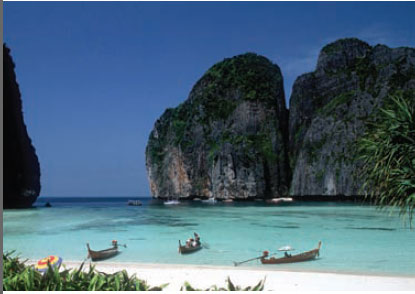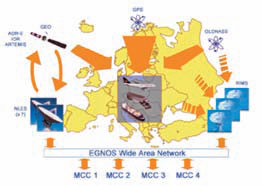
Satellite remote sensing has been used to varying degrees around the
world for over three decades. Over that time the degree to which the technology has been applied has varied greatly from country to country – from being broadly embraced to being used hardly at all. Simply stated, where remotely sensed data and related geospatial data are used in a limited fashion the full economic and social value of the data for resource evaluation, sustainable resource management, and environmental protection is not realized. This paper examines the key factors that appear to be associated with varying use of the data and consequent derivation of benefits. At one time it was thought that this use was related to the economic situation within a country or the quality of training and education. While these factors are of course important, this work isolates other factors as being equally if not more important. These factors include data policy, approaches to commercialization, the level of applied research and links to “real” users. This paper explores the importance of these other factors with special reference to data policy in Thailand and Canada.

The current GPS civil service provides suitable performance only in situations of good electromagnetic visibility; the positioning becomes difficult in severely signal degraded environments, e.g. mountainous or urban areas, where a lot of GPS signals are blocked by buildings or
natural obstacles. The GPS gaps can be partially solved employing spacebased augmentations systems; in this paper we consider geostationary and geosynchronous constellations. A simulation software has been developed in MATLAB® environment in order to study the integration of existent and feasible constellations.
July 2008
International Summer Schoool on GNS
21 – 31 July
Berchtesgaden, Bavaria, Germany
http://www.munich-satellite-navigationsummerschool.
August 2008
ESRI’s 28th annual International User Conference
August 4-8, 2008 in San Diego, California
http://www.esri.com
3rd Indonesian Geo-Information …
It is a demonstration once again.
Rather, an assertion of capabilities and underlying pride.
ISRO’s Polar Satellite Launch Vehicle,
PSLV-C9, successfully launched ten satellites
together, perhaps the highest payload ever.
…

Second Galileo test satellite launched successfully
Giove-B, the second test satellite for Galileo, was launched aboard a Russian rocket departing from the Baikonur cosmodrome in Kazakhstan. The European Space Agency confirmed that the two solar panels powering the satellite had deployed without incident and were fully. Giove-B will start In-Orbit Validation of the signal configuration and carry out tests of high precision signal ranging. On board the satellite is an extremely accurate atomic clock based on a MASER (microwave amplification by stimulated emission of radiation) and two rubidium atomic clocks. http://www.heise-online.co.uk

India’s leap into space
On April 28, 2008, ISRO’s Polar Satellite Launch Vehicle, PSLV-C9, successfully launched the 690 kg Indian remote sensing satellite CARTOSAT- 2A, the 83 kg Indian Mini Satellite (IMS-1) and eight nanosatellites for international customers into a 637 km polar Sun Synchronous Orbit (SSO). PSLV-C9 in its ‘core alone’ configuration launched ten satellites with a total weight of about 820 kg.

Industrial GNSS market to Hit $240B by 2013
According to ABI Research, industrial applications such as network timing, land surveying, and machine control are quickly gaining momentum. It forecasts that by 2013 GNSS end-user devices and systems will generate yearly revenues of $240 billion. However, innovative workaround solutions based on the post-processing of the GPS signal are being developed, as is the use of assisted-GPS technology to provide location and satellite data to connected devices for faster fixes and better coverage http://www.abiresearch.com

What is the Future Cities India 2020 program?
Future Cities India 2020 was inspired by the U.S.-based National Engineers Week Future City Competition. That program, which is in its 16th year, reaches more than 30,000 students annually. Bentley sponsors the Future City Competition National Finals and also chairs its …











 (5.00 out of 5)
(5.00 out of 5)